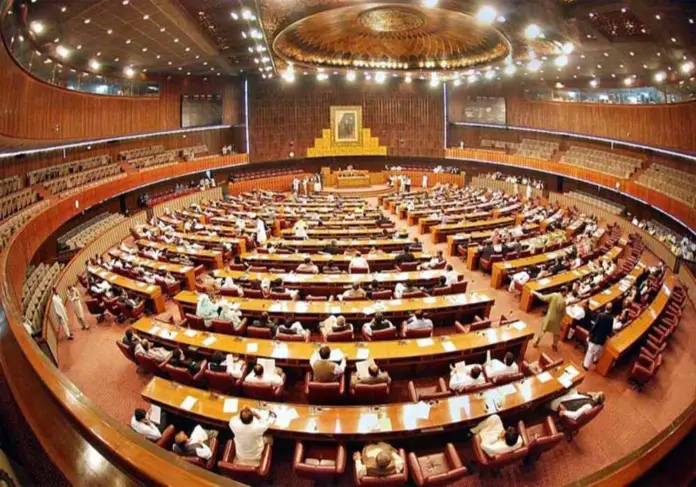In his collection of essays titled ‘Prepared for the Worst’ British-American author Christopher Hitchens mentions, “The Pericles Greeks employed the term idiots without any connotation of stupidity or sub normality, to mean simply ‘a person indifferent to public affairs’.” Although he equally matches the apathy of being apolitical with the plunders of political power brokers, yet signifying that apolitical, is being indifferent. So the vagaries of not being associated to any political dexterity, party or thought simply assigns us a value of either belonging to a privileged class, radiating a confidence that world around us is subservient to our benefits and interests, hence no need to be political. Or, we have been made to be so much absorbed in our day-to-day grinds that we are moving in a haze while putting on our survival mode, too preoccupied, to take a political stance.
And then, there are people in society who don’t have a choice to embrace or evade politics. Per force, they have to be politically active to fight against proponents of status quo, meting out injustice to them one way or the other. They are more interested to seek justice. Recently, Black Lives Matter (BLM) movement has reinforced the politicization of “race” rallying the black colored people to pump up the volume of the anti-racism cry. It is, therefore, a compulsion and not a choice. So on and so forth, politics is all around us, all over us. Our daily lives are an intricate web of politics itself. Our habitats, owned or rented, quality of municipal services which is provided to us, the quality of education and health facilities is political, working environment and rate of employment or unemployment are a direct outcome of political decisions of federal, provincial or local political governments.
There is yet another type of class which remains attached to politics to the extent of being correct only. To remain politically correct, per se. The likelihood of going astray politically increases with ethnic, racial, religious, cultural, gender and behavioral diversity. For example, an employer from one ethnicity shall remain more cautious of the fact that his or her words or actions do not condone or imply any feeling or preferential treatment to the employees of same ethnicity, which may irk employees from other ethnic backgrounds. People belonging to such class remain worried how they are viewed as representative of the social identity group they belong to. Based on the “equality for all” paradigm, this seems to be creating goodwill, but at the same time imposes barriers on interactive and engaging social dialogue. Why so, it is because people feel they will be judged and likely it is that they can be blamed. The end state is that people draw their own conclusions based on their pre-conceived notions.
Political mindsets yield political systems, an outcome which may or may not guarantee stable and working governance and hence the crises. Political crises do not occur in a vacuum, rather they simmer and brew on the burners of economic crises. The interplay of both, is intricate. At the heels of one can follow another, chronology can be vice versa. The underlying reasons to these interrelated crises can be corruption, lack of transparency, increasing unemployment and much more, the discussion of which is not aimed at the cost of repetition here, as the same is already covered in my write up – stability of political instability – published few weeks back. However, one question does come to the fore, anew, in the midst of one such crisis engulfing Pakistan today; is remaining apolitical the right approach?
Our national political scenario has been rife with conspiracies and concoctions since independence, breeding on ethnicity, economy, religion and threat perceptions. Being an ethnic or linguistic activist used to be the ‘in thing’ till 80s, another was being part of socialist, communist or pure capitalistic camp. A popular slogan which even designated a certain color on the continental basis to Asia, also remained in vogue. Then came the Soviet invasion in the neighborhood changing the game on our political horizon, which was already garnished with a government, at the helm in the name of religion. The political circus of the 90s and its aftermath is well known to all, which took a major security downturn post 9/11, the undercurrents of which are still creating whirlpools for the nation. The fallouts from 90s created a class in our society which became disinterested in national politics. Leaving a void to be filled in by none other than sycophants, and opportunists lopsided on the basis of class, caste and creed. Divide on any basis and rule with only few faces, turn by turn, became the order of the day.
We have traversed and navigated through a bloody river to be at a stage when our destiny now demands to take sides, on the basis of our political thought and not by remaining apolitical. The mum masses have been increasingly speaking up in recent years. Those who haven’t, need to know that they matter, they need to do now. Being apolitical now is being an idiot. Forget about being politically correct, go wrong but come out of slumber. It has been only twice post-independence that political aspirations of the nation got galvanized on the basis of narratives; both had one thing in common, self-sustained and independent foreign policy despite bearing major economic upheavals, hinting at the formation of a larger Muslim bloc. Once it was post 1971 debacle, under Zulfikar Ali Bhutto’s administration (largely seen as a damage control measure for the breakup of the country) and for the second time, it is now and when can it be next, in the foreseeable future, it seems to be never. It is now or never.







